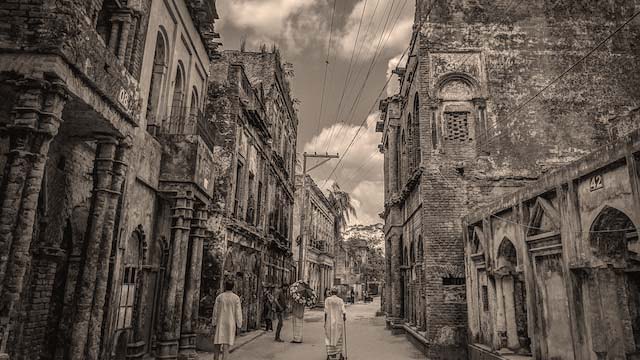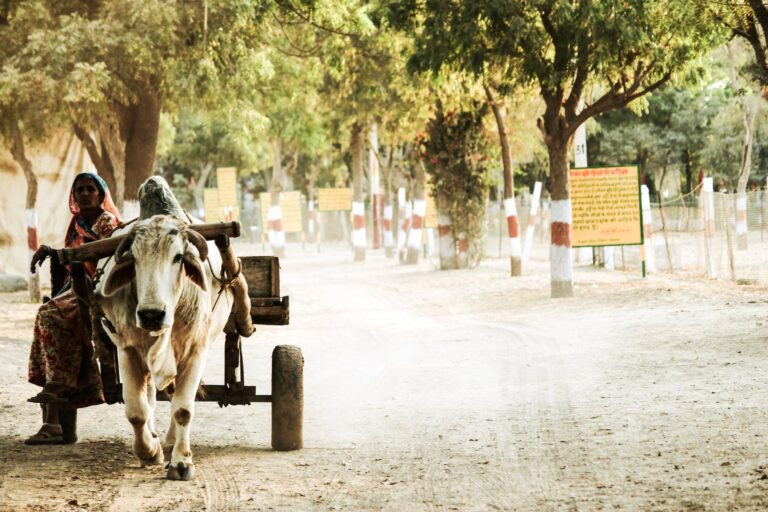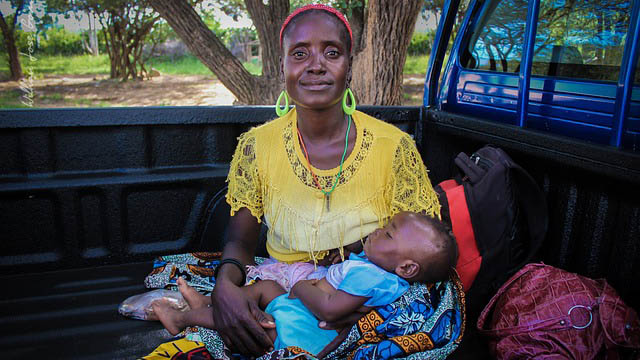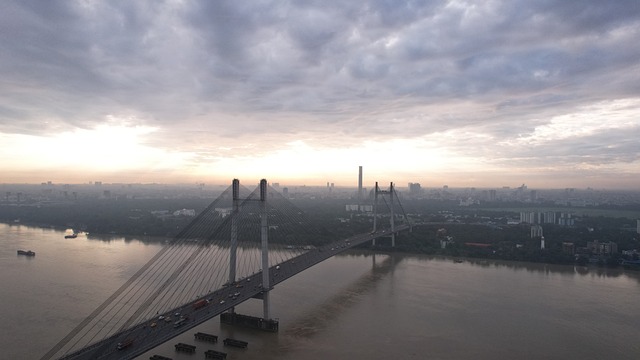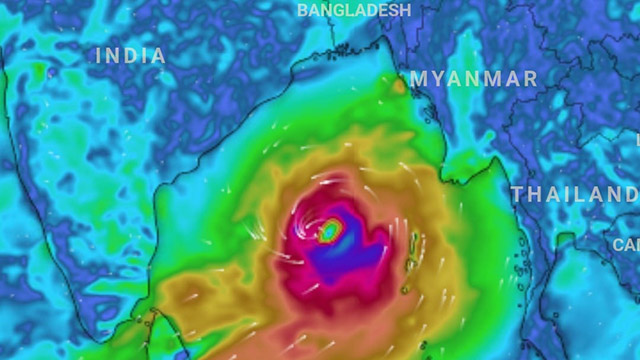In Bangladesh’s capital Dhaka and other regions, common people have been living in extreme hardship in the heat of summer for quite some time. The farmers of the country have faced huge losses. Along with this, due to the acute water crisis, people are facing more difficulties in various parts of Bangladesh. Although there are indications of a slight change in the weather and there is a chance of light rain on Sunday, April 23rd, there is no relief in sight for the coming days.
On Monday, April 17th, the temperature touched 42.6 degrees Celsius in the Rajshahi division, the highest in 18 years. Farmers believe that the heatwave will have an adverse impact on mango and bodo rice cultivation. According to divisional authorities, bodo paddy has been cultivated on 372,000 hectares in Chapainawabganj, Naogaon, Natore and Rajshahi districts of Rajshahi division, among which many areas are facing a water crisis. Although 92,913 hectares of mango are cultivated in this division, the farmers fear that almost 20% of the mango sprouts have died due to severe heat and water crises.
A huge drop in the underground water level has also been observed in various areas of Rajshahi, because of which people are not getting the water required for daily life along with that required for farming. The groundwater level has fallen 30 to 35 feet in different areas of Bagha Upazila. The water crisis has become direr in the Tenthulia, Nautika, Dhandah, and Amarpur areas of Bagha Upazila. Common people are not getting water in tube wells in many places. Officials did not get water even after digging 700ft in the Mundumala municipality area of Tanore Upazila.
The water crisis in the capital Dhaka became extreme amid an unprecedented heatwave during the Islamic month of Ramzan when Muslims fast. East Kazipara, Mirpur, Mohammadpur, Mohakhali, Tejgaon, Matuail, Vatara, and Jurain regions have experienced acute water crises. Dhaka Water and Sewage Authority (WASA) has been unable to supply sufficient water to the people of all areas despite sending water tankers. It is alleged that even on the holy day of Eid severe water crises persisted in many places.
There is a water crisis in Dhanmondi, Manipuripara, Farmgate and Sher Bangla areas under Zone 3 of WASA Maintenance, Operation, Distribution, and Service (MODS); but the crisis is severe in Mohammadia Housing, Navodaya Housing, Shekhertek, Abdur Rafiq Housing, Adabar areas. As the water crisis in the Bonalata Residential Area of the West Agargaon region has turned acute, the anger of the residents has been increasing. The MODS authorities are unable to provide adequate water supply to these areas in any way.
On the other hand, Bangladesh’s West Zone Power Distribution Company Limited reported that electricity demand in 21 southern districts started increasing last week due to intense heat. People faced extreme difficulties during Ramzan due to load shedding in various areas of the Khulna division for over five hours daily. It is alleged that due to frequent load-shedding especially in the evening, children, the elderly and the sick suffered the most. Common people complain that the power supply was not normal even on Eid and load shedding continues.
The intense heat and the absence of ‘Kal Baishaki’ (a spring thundershower) in the entire Bangladesh until Eid has been troubling many environmentalists. Allegations are emerging that coastal countries like Bangladesh are suffering because of the ongoing global climate change, as well as unequal water agreements with India, unplanned urbanisation, and construction that have exacerbated the country’s water crisis.
On top of that, due to the heavy use of electrical appliances, especially air conditioners by the middle and upper classes, the demand for electricity is greater than the supply, and a severe power crisis has also occurred in various parts of the country.
Among them, the most affected are Bangladesh’s farmers, whose income from farming has been nosediving for years due to the water crisis. Many farmers are sceptical about whether they will be able to survive on farming in Bangladesh, the land of rivers and canals, after a few years if the situation remains unchanged. This scepticism has led to an increase in migration from villages to cities and abroad in search of a sustainable income.
Although the drumbeat for the upcoming elections has started, political experts doubt that neither the ruling Awami League nor the opposition Bangladesh Nationalist Party (BNP) considers climate change as a challenge to prepare policies to protect the common people of Bangladesh, its farmers and agriculture, and at the same time, the direction of the country’s development in harmony with nature. In such a situation, the people of the country are now considered to have no other option but to look at the sky and pray.

